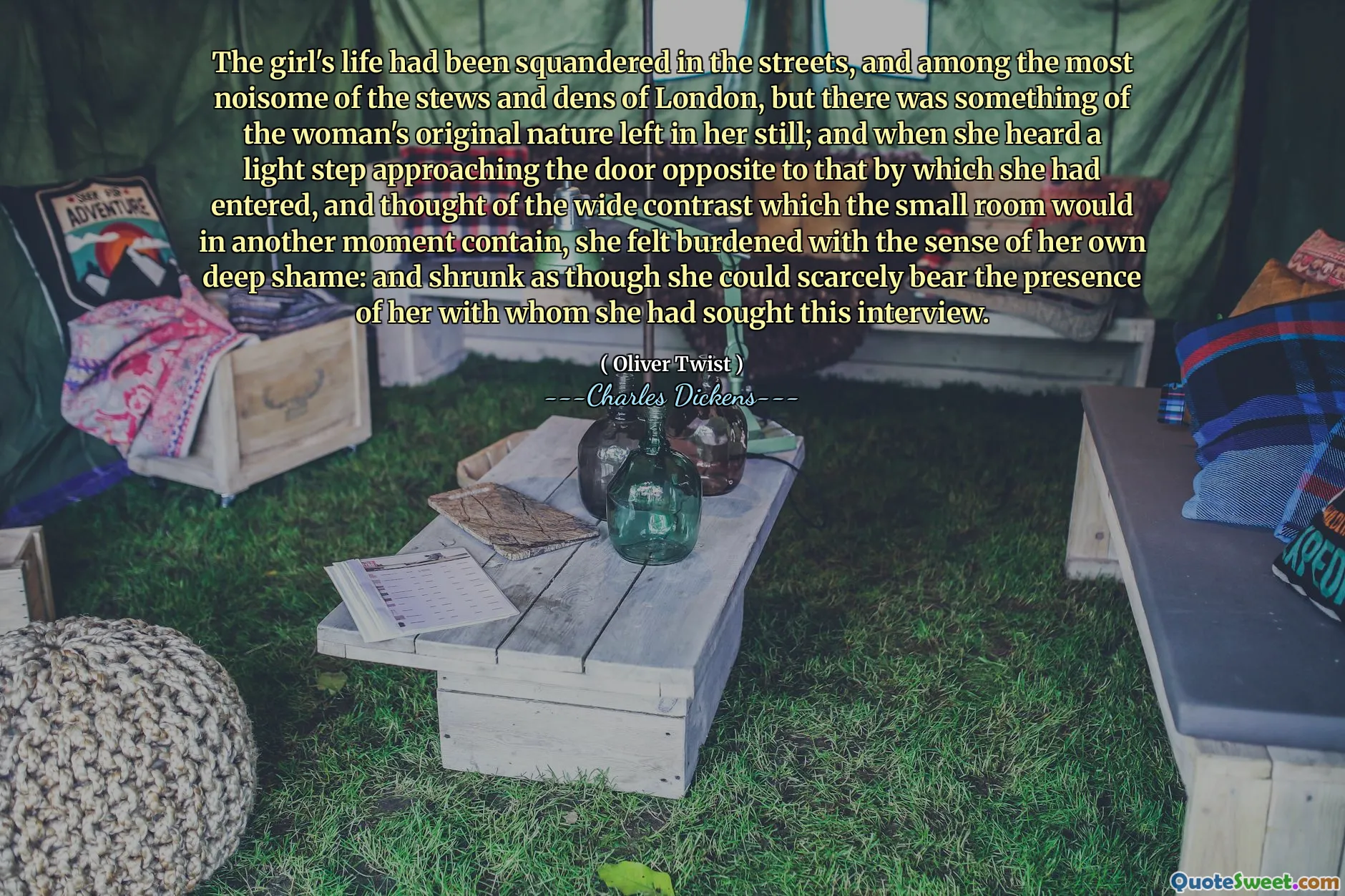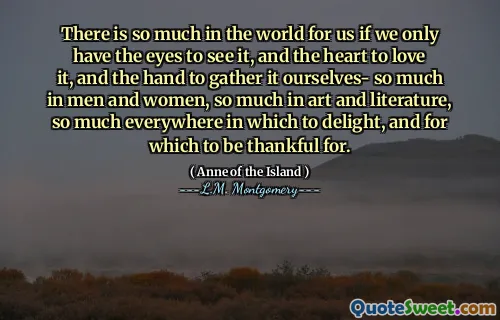
The girl's life had been squandered in the streets, and among the most noisome of the stews and dens of London, but there was something of the woman's original nature left in her still; and when she heard a light step approaching the door opposite to that by which she had entered, and thought of the wide contrast which the small room would in another moment contain, she felt burdened with the sense of her own deep shame: and shrunk as though she could scarcely bear the presence of her with whom she had sought this interview.
This passage vividly captures the profound sense of shame and internal conflict experienced by a young woman whose life has been marred by hardship and indulgence in London's darker corners. Dickens artfully explores the resilience of her original nature, suggesting that, despite her circumstances—living among impoverished and morally questionable environments—her innate goodness endures beneath a veneer of despair. The approaching footsteps and the anticipation of a different, more respectable setting evoke a moment of intense vulnerability. The woman's shrinking indicates the depth of her embarrassment, perhaps due to fears of judgment or an awareness of her social degradation. Dickens not only depicts her external situation but also delves into her inner psychological state, highlighting how environments and circumstances shape individuals, yet do not entirely erase their intrinsic qualities. The scene emphasizes themes of shame, redemption, and the enduring spark of humanity even in the most fallen individuals. Dickens's portrayal elicits empathy for those caught between societal neglect and personal dignity, urging readers to consider the complex layers of circumstances that lead to moral and social decline. The narrative invites us to reflect on the societal structures that keep such individuals marginalized and the hope that amidst darkness, the innate goodness may still flicker, waiting for a chance at renewal.






